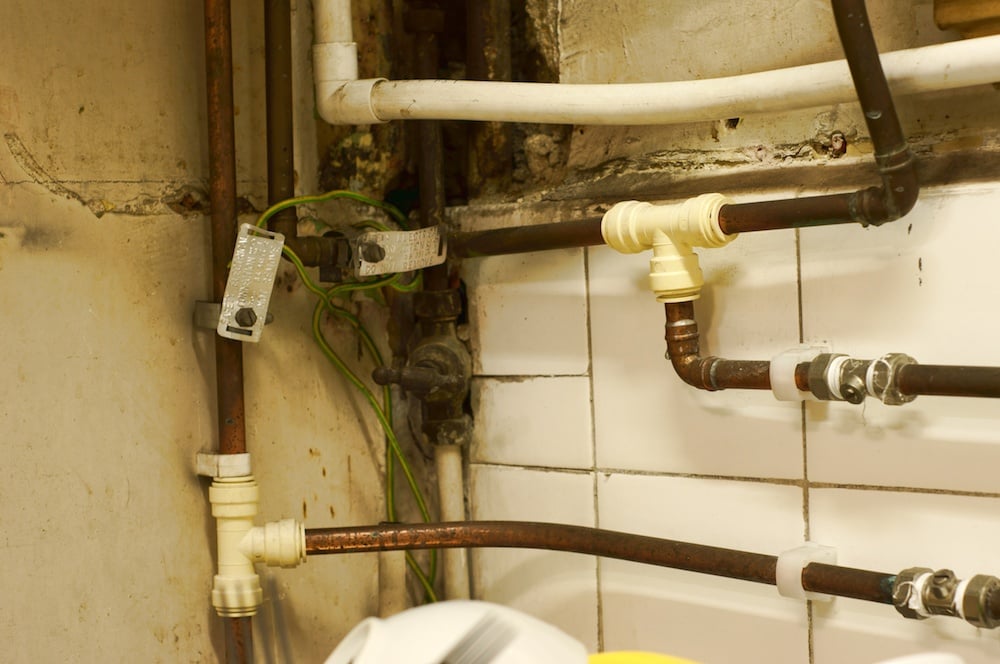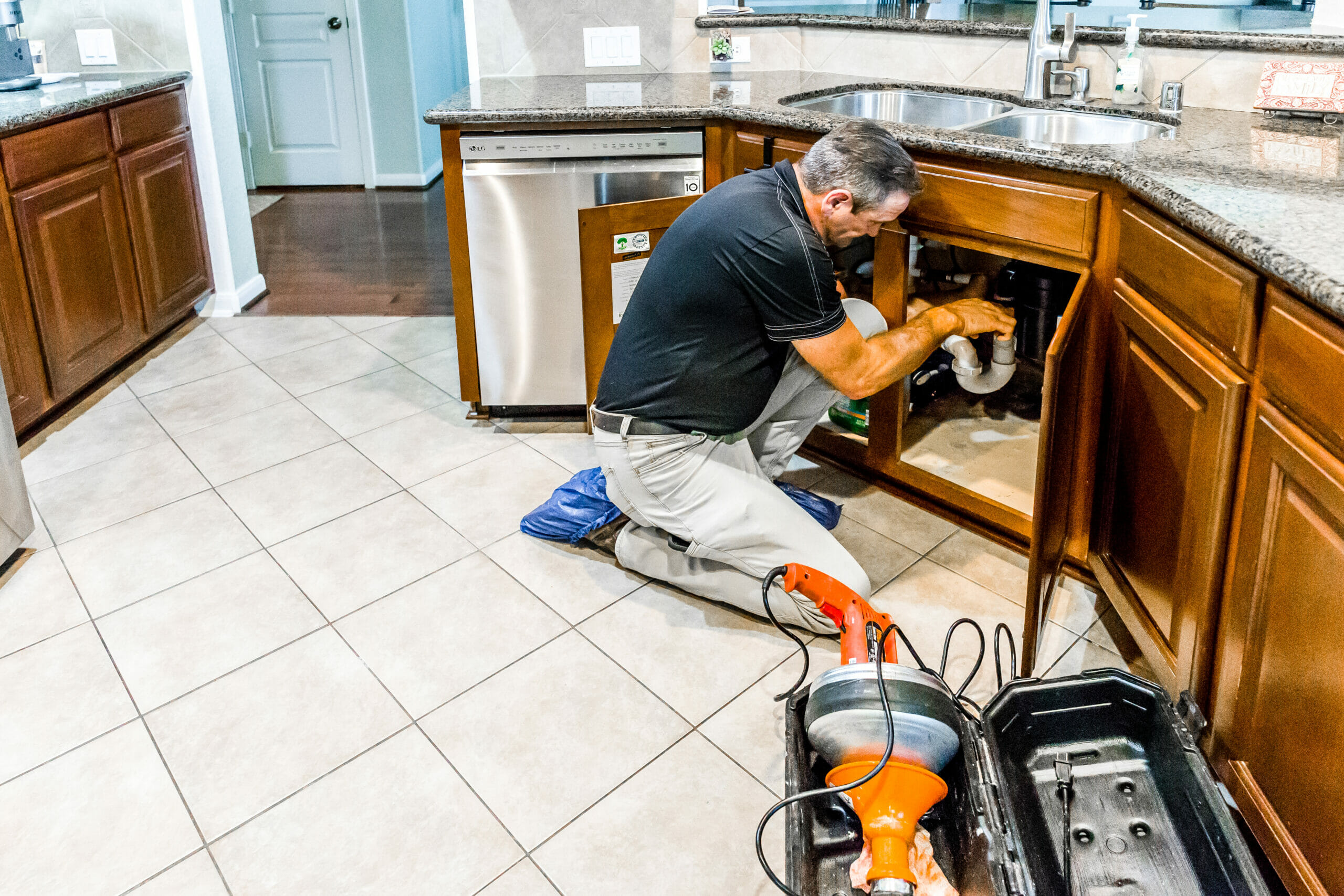This great article in the next paragraphs involving Common Plumbing Problems in Older Homes is indeed attention-grabbing. Read it for yourself and decide what you think about it.

Older homes commonly come with beauty, character, and background, yet they can likewise bring a host of plumbing concerns. Whether you're taking care of aging pipelines, low tide stress, or leaks, knowing how to deal with these typical problems is vital to maintaining a safe and useful home. In this guide, we'll check out the common pipes obstacles dealt with by older homes and supply useful remedies to keep your plumbing in top shape.
Comprehending Common Plumbing Concerns
Aging Pipes
One of the most common concerns in older homes is maturing pipes. Depending upon the period in which your home was developed, the pipes may be made from materials that have actually deteriorated gradually, such as galvanized steel, cast iron, and even lead. These materials can corrode, come to be brittle, or establish leakages, bring about water damages and possible carcinogen.
Water Top Quality Testing
Older pipes can impact the top quality of your water. Conduct a water quality test to look for impurities such as lead, corrosion, or other pollutants that might be introduced by maturing pipes.
Solutions for Typical Plumbing Issues
Replacing Aging Pipes
If your home has old, wearing away pipes, take into consideration replacing them with modern products like copper or PEX. This can be a considerable financial investment, yet it will certainly stop future issues and enhance the security and integrity of your plumbing system.
Repairing Low Water Pressure
To repair low water stress, beginning by cleansing or changing old fixtures and getting rid of mineral buildup in the pipes. If the problem persists, it may be required to change areas of rusty pipelines.
Fixing and Changing Leaking Pipes
For small leaks, you can utilize pipeline clamps or epoxy putty as a momentary fix. Nevertheless, it's ideal to change leaking pipes completely to prevent additional damage.
Upgrading Fixtures
Upgrading old fixtures to modern, water-efficient versions can enhance your home's pipes efficiency and minimize water intake. Search for fixtures with the WaterSense label for the best effectiveness.
Taking Care Of Pipe Deterioration
If your pipes are rusted, replacing them with corrosion-resistant materials like copper, PVC, or PEX is the most effective solution. Regular assessments and water quality maintenance can aid stop better rust.
Low Tide Pressure
If you're experiencing low tide pressure, it could be due to natural resources, rust inside the pipelines, or old fixtures that are no more operating successfully. This can be a major hassle, specifically in areas like showers and sinks.
Dripping Pipelines
Leaks are another constant concern in older homes, typically caused by corroded or damaged pipes. Even small leaks can bring about significant water damage, mold and mildew development, and raised water expenses if not resolved promptly.
Out-of-date Components
Out-of-date plumbing fixtures such as taps, bathrooms, and showerheads not just look old however may likewise be less reliable, susceptible to leakages, or incompatible with contemporary plumbing requirements.
Pipeline Rust
Corrosion is a common trouble in older pipelines, especially those made from galvanized steel or cast iron. Corroded pipes can limit water circulation, create staining, and eventually result in leaks or pipeline bursts.
Assessing the Problem of Your Pipes
Examining Noticeable Pipes
Start by evaluating any noticeable pipes in your house, such as those in cellars, crawl spaces, or under sinks. Seek indicators of deterioration, leaks, or rust, which can suggest underlying issues.
Checking for Leakages
Check for leaks by inspecting areas around faucets, toilets, and under sinks. You can additionally monitor your water meter before and after a period of no water use to find hidden leakages.
When to Call an Expert
While some plumbing issues can be managed with do it yourself services, there are times when it's ideal to contact an expert. If you're dealing with significant leakages, comprehensive deterioration, or are unsure about the problem of your pipelines, a certified plumbing can provide skilled analysis and repair service.
Preventive Upkeep Tips
Regular Inspections
On a regular basis evaluate your pipes system for indications of damage. Catching concerns early can stop expensive repair services down the line.
Water Pressure Guideline
Guarantee your water pressure is within the recommended array to prevent worrying your pipelines and components. A plumbing can set up a stress regulator if required.
Water Top Quality Upkeep
Install water filters or softeners if your water top quality is poor. This can protect your pipelines and components from damage triggered by difficult water or contaminants.
Proactive Pipe Substitute
If your home has older pipelines, think about proactive substitute prior to significant issues develop. This can save you from emergency repairs and water damage.
Final thought
Dealing with plumbing concerns in older homes needs a mix of vigilance, preventive upkeep, and prompt upgrades. By recognizing the typical difficulties and recognizing when to seek professional aid, you can ensure your pipes system remains practical and reputable for several years ahead.
Common Plumbing Issues in Older Homes
Pipe corrosion
Pipe corrosion is a common plumbing issue in older homes. Several factors can cause pipes to corrode:
Water: Ironically, water is the number one cause of pipe corrosion. When water seeps into cracks in pipes, it can cause the metal to rust and break down, leading to leaks or even burst pipes.
Oxygen: Oxygen is another significant culprit in pipe corrosion. When oxygen interacts with water, it can cause the metal to oxidize and weaken.
Chemicals: Chemicals such as chlorine and fluoride can also contribute to pipe corrosion. These chemicals can react with the metal in pipes, causing them to break down over time.
Leaky pipes
Pipes that leak is one of the most common plumbing issues plaguing residents of older houses. While a small leak may not be a problem initially, it can lead to significant problems if left unaddressed. In addition, water damage can be very costly to repair and may cause damage to electric fixtures, promote mold growth and cause many other issues.
Worn-out fixtures
Older homes often have worn-out fixtures which may need replacement. Over time, the finishes on fixtures can wear down, exposing the underlying metal to corrosion. This can cause fixtures to leak or even break completely. It s best to have a professional plumbing contractor regularly inspect the fixtures in older homes and replaces them if necessary.
Faulty water heaters
A leaky water heater can cause severe damage to the home as it can be both a flood and fire hazard. Call a plumber immediately if it appears that the water heater might be leaking.
If the heater isn t working correctly, it could be because the pilot has gone out. The pilot light going out may indicate gas supply issues or leaks. It is also worth checking the thermostat to see if it needs to be adjusted.
If the water heater is making strange noises, it could be due to sediment buildup in the tank. Sediment can interfere with the heating elements and cause them to overheat. Overheating can damage the tank and shorten the lifespan of the water heater.
https://www.norfleetfamilyplumbing.com/blog/common-plumbing-issues-in-older-homes

Hopefully you liked our section on Plumbing Problems In Old Homes. Thank you for taking a few minutes to browse our blog. Those who enjoyed our post kindly be sure to pass it around. I am grateful for your time. Don't forget to check our site back soon.
Call Today